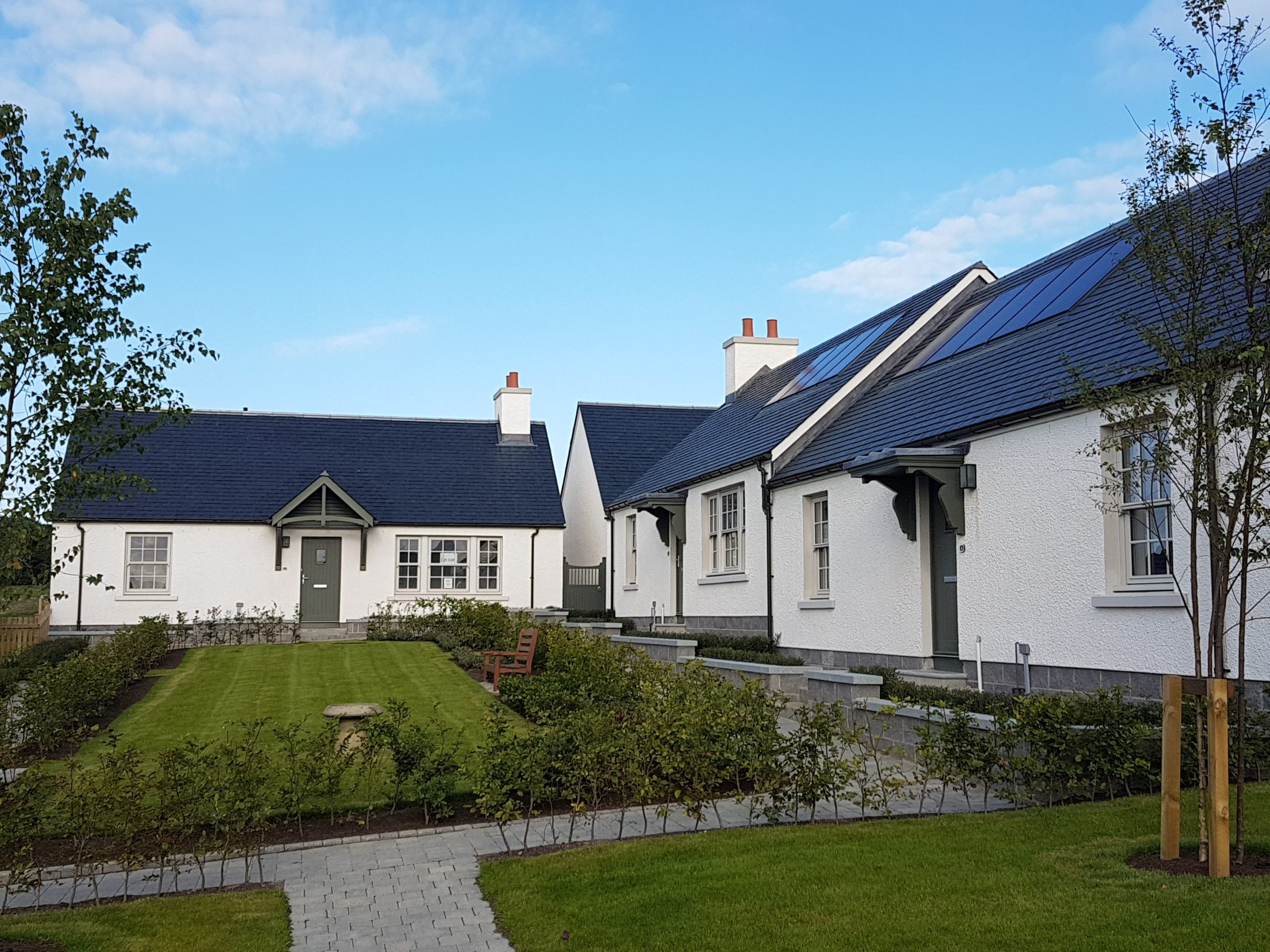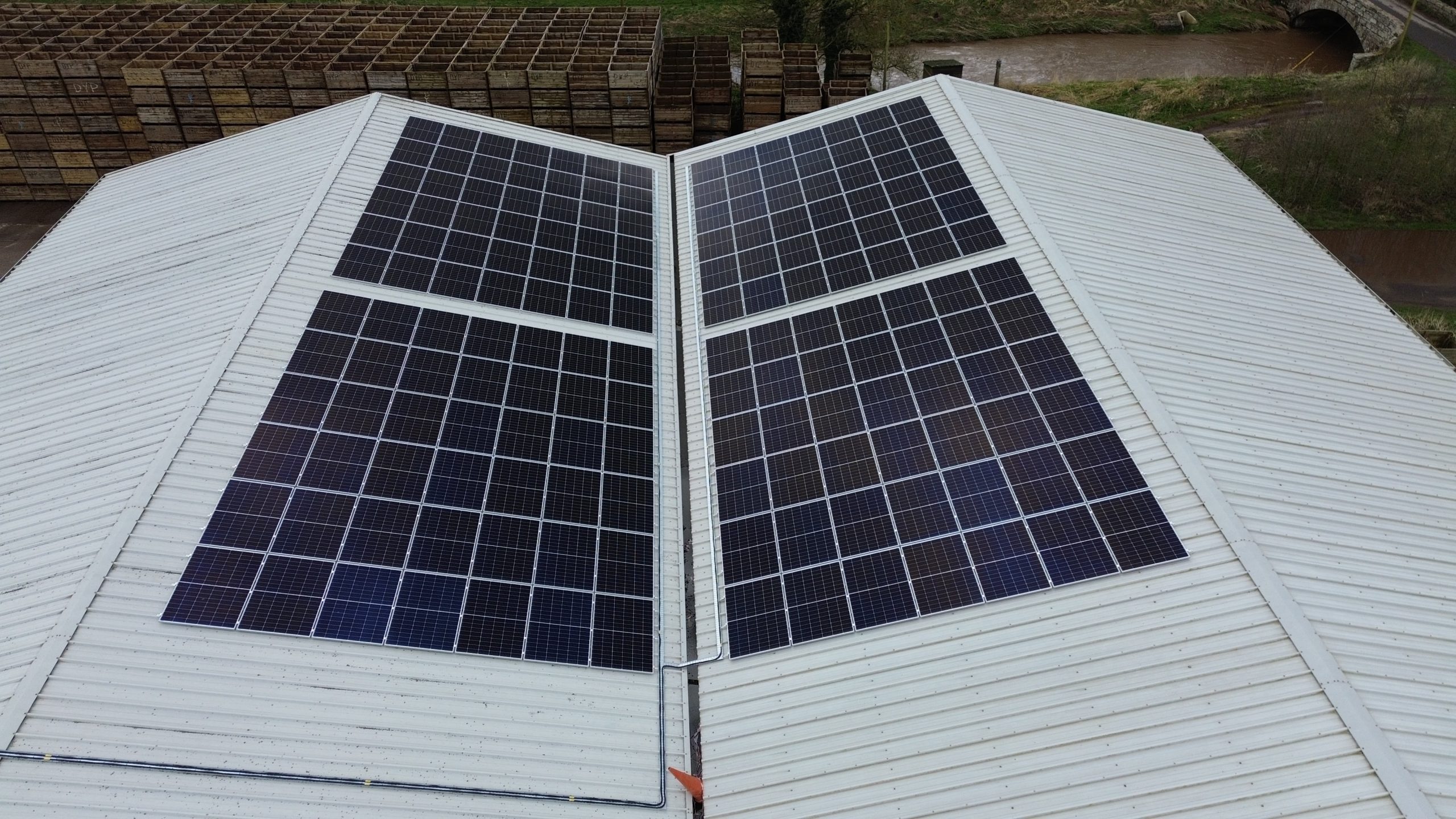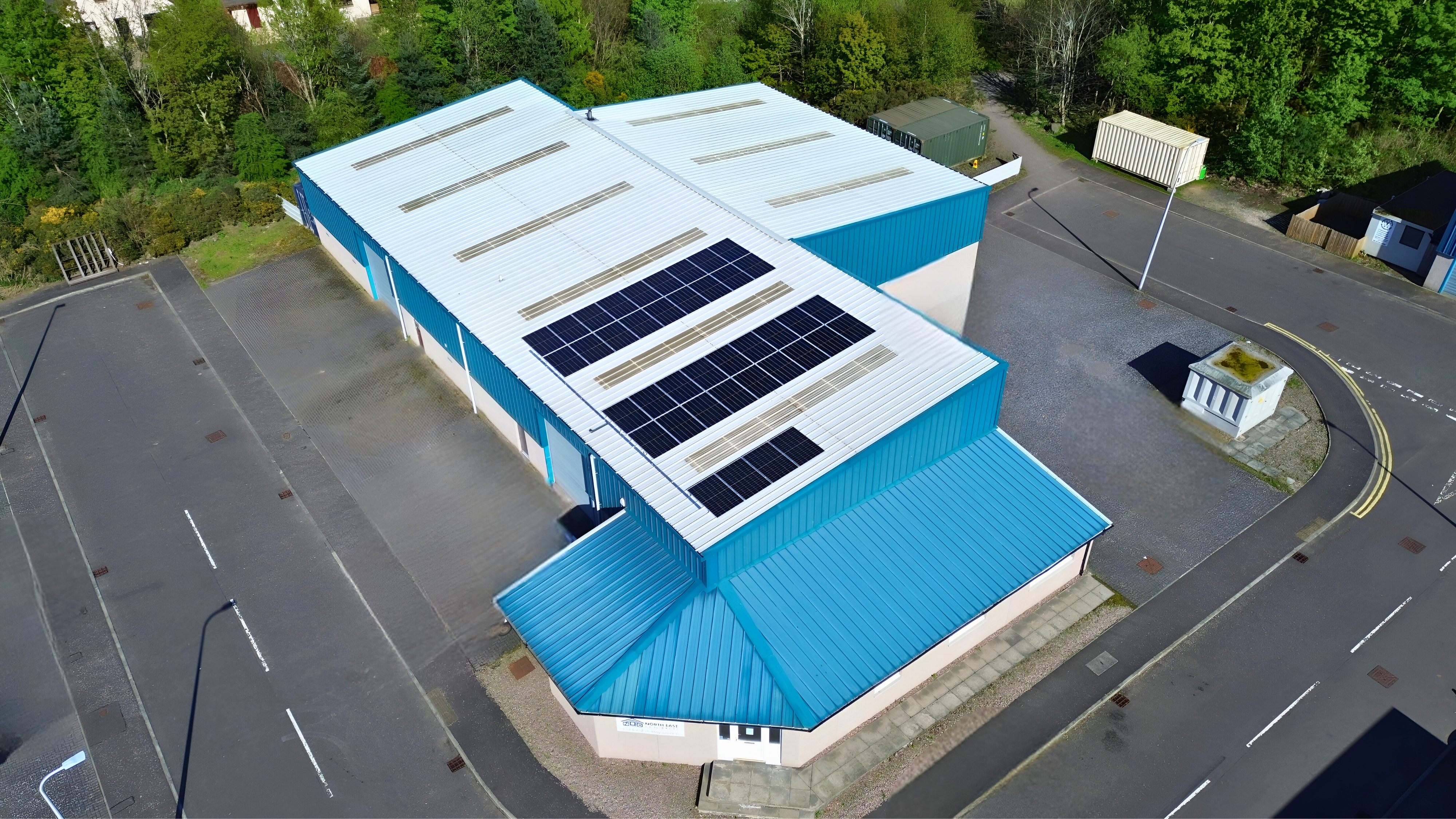Call us now on 01356628560
Call us now on 01356628560

From enquiry through design and installation would typically be around 6 weeks. The installation itself for a typical domestic system would take up to 3 days.
Planning Permission for solar PV installations is typically only needed on listed buildings or in conservation areas. If we believe that Planning Permission may be necessary, we will advise you during the survey.
Panels have performance guarantees for upwards of 25 years. We expect most will continue to generate long after that.
Manufacturer guarantees are typically 10 years, and we also provide a 2-year guarantee on every installation.
No. East/West can be equally effective. In some cases, even north facing panels can make sense. Our quotation process considers all factors (direction, pitch, shading etc).
No, not unless they have received additional training and signed off as competent.
Solar requires additional knowledge and skills not normally included in standard electrical training and assessment.

Depends on consumption, time of use, season etc. The more you are able to make use of your generated energy, the greater the financial return. We have seen 80% drop in bills, but a more typical figure could be 20-40% reduction. Adding batteries to the system could increase this to >50%.
Although the price will increase with additional panels, it can still be cost effective to maximise the space available. Our survey process will help find the optimal solution for you.
Yes if you have a smart meter and MCS certified installation.
Availability of grants and finance options are an ever-changing landscape. Speak to one of our engineers to get the latest information.
No. Domestic solar PV and battery installations are VAT exempt until 2027. This represents a massive discount of 20% for you.
No. Although with a larger system (assuming you have space for one), you might generate the same amount of electricity over a year that you consume in a year, there will always be times when you need to use electricity when there is no solar PV/battery capacity available.
Depending on the age and condition of the roof, it may be worthwhile considering getting some work done on your roof. In many cases, a solar PV installation will involve significant alteration to your roof covering, so it is an ideal time to look at wider roofing related works. Speak with one of our engineers to find out more.
Yes.
Solar is a renewable technology which means it’s more beneficial to the environment than established fossil fuel sources of energy.
Generating your own electricity with solar panels on your roof will reduce your carbon emissions, save you money and protect your household budget from future energy price hikes.
Yes. It will help you to use more of the electricity that the solar PV system generates at peak times.
A spot with good exposure to sunlight is preferable but modern solar panels work even in cloudy weather and rain can even help keep them clean. We have sufficient light levels throughout the year that means solar PV performs exceptionally well.
Most solar PV systems will stop generating electricity in the event of a power cut. If you have a battery as well, it can be possible to configure it to work during a power cut, but this would require additional works which increases the price.
A visual inspection (from ground level) by you is normally all that is required. Cleaning can in some cases be beneficial, but in most circumstances, the rain will keep the panels clean enough. If the panels do become excessively dirty, there are specialist companies available to clean them.
In terms of the electrical equipment, we suggest an occasional check (once every 10 years) by a qualified solar PV installer.
No, Forster Group does not install heat pumps, please click (here) for information on Scottish Gas heat pumps.
Yes provided you are happy to lose some of your garden. Planning permission may also be necessary.

Designing and installing a system that will work for your business normally takes 6-8 weeks. Any need for permission to connect a system to the local distribution network may extend this for longer. As would any need for planning permission
It’s no more difficult than the original installation. Provided there is suitable roof space we can access then installation is very straight forward.
Ofgem do allow extensions and additional capacity to be added to FiT eligible systems (although the extension/extra capacity won’t qualify for FiT payments).
We may also be able to install another system that sits alongside, and doesn’t affect, the existing one.
Yes. Increasing numbers of customers are looking to utilise battery storage in order to store the energy they generate from solar panels.
Storage is a much more integrated solution with solar as people can control when they use the energy they have generated with their solar to maximise the savings.
The additional of a storage battery is relatively simple. Apart from the extra cost there are no obstacles for most systems.
With the right solar installation, the standard unit cost of electricity can be reduced from around 75 or 80 pence per kWh, to as little as 7 pence.
Farmers installing photovoltaic (PV) systems today, particularly those with high electricity demand, can expect to make a return on investment of over 15% per annum?
Solar is fully scalable and systems can range from just a few panels to many thousands. The Forster Energy team can design a system as big or as small to best suit your needs.
With a little basic information from you we can provide a quick budget estimate for you to consider before we design in detail.
This can differ between businesses. However, Forster Energy will consider your current and future energy needs before tailoring the most cost-effective solar solution and where applicable, storage batteries.
Possibly yes depending on the system size and location.
The Forster Energy team can discuss your project with your local authority and then, if required, support your application.
Yes. We’d be happy to discuss your needs and what this might cost.
No, not unless they have received additional training and signed off as competent.
Under the Construction Design and Management Regulations you are legally obliged to ensure any contractor undertaking works for you are competent to do so


It’s no more difficult than the original installation. Provided there is suitable roof space we can access then installation is very straight forward.
Ofgem do allow extensions and additional capacity to be added to FiT eligible systems (although the extension/extra capacity won’t qualify for FiT payments).
We may also be able to install another system that sits alongside, and doesn’t affect, the existing one.
Designing and installing a system that will work for your business normally takes 6-8 weeks. Any need for permission to connect a system to the local distribution network may extend this for longer. As would any need for planning permission
Yes. Increasing numbers of customers are looking to utilise battery storage in order to store the energy they generate from solar panels.
Storage is a much more integrated solution with solar as people can control when they use the energy they have generated with their solar to maximise the savings.
The additional of a storage battery is relatively simple. Apart from the extra cost there are no obstacles for most systems.
With the right solar installation, the standard unit cost of electricity can be reduced from around 75 or 80 pence per kWh, to as little as 7 pence.
Businesses installing photovoltaic (PV) systems today, particularly those with high electricity demand, can expect to make a return on investment of over 15% per annum?
Solar is fully scalable and systems can range from just a few panels to many thousands. The Forster Energy team can design a system as big or as small to best suit your needs.
With a little basic information from you we can provide a quick budget estimate for you to consider before we design in detail.
This can differ between businesses. However, Forster Energy will consider your current and future energy needs before tailoring the most cost-effective solar solution and where applicable, storage batteries.

Possibly yes depending on the system size and location.
The Forster Energy team can discuss your project with your local authority and then, if required, support your application.
Yes. We’d be happy to discuss your needs and what this might cost.
No, not unless they have received additional training and signed off as competent.
Under the Construction Design and Management Regulations you are legally obliged to ensure any contractor undertaking works for you are competent to do so
Yes. This is especially worth considering if you have land with no other profitable use.